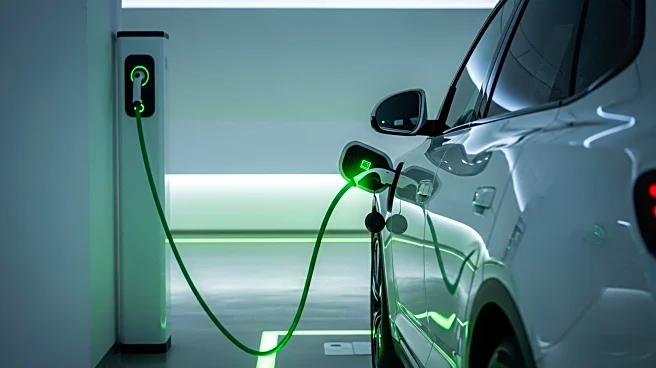What's Happening?
The Internal Revenue Service (IRS) has clarified the conditions under which consumers can still qualify for the $7,500 electric vehicle (EV) tax credit after the September 30 deadline. According to the IRS, consumers who have a 'written binding contract' and make a payment on or before September 30 can claim the tax credit even if they take possession of the vehicle after the deadline. This clarification comes after the tax credits were eliminated as part of a Republican tax and spending measure passed in July. The IRS's update applies to new, used, and leased EVs, providing consumers with more flexibility in acquiring eligible vehicles.
Why It's Important?
The IRS's clarification offers consumers a crucial opportunity to benefit from the EV tax credit despite the looming deadline. This development is significant for the automotive industry, particularly for manufacturers and dealers of electric vehicles, as it may boost sales and encourage more consumers to transition to cleaner transportation options. The tax credit serves as an incentive for consumers to invest in EVs, supporting broader environmental goals and the shift towards sustainable energy solutions. Additionally, this move may influence consumer purchasing decisions and impact the market dynamics for electric vehicles.
What's Next?
Consumers interested in purchasing or leasing an EV should act quickly to secure a binding contract and make a payment before the September 30 deadline to ensure eligibility for the tax credit. Automotive dealers and manufacturers may ramp up promotional efforts to inform potential buyers of this opportunity. As the deadline approaches, there could be increased demand for EVs, potentially leading to supply chain adjustments and strategic marketing campaigns to capitalize on the tax credit's availability.










